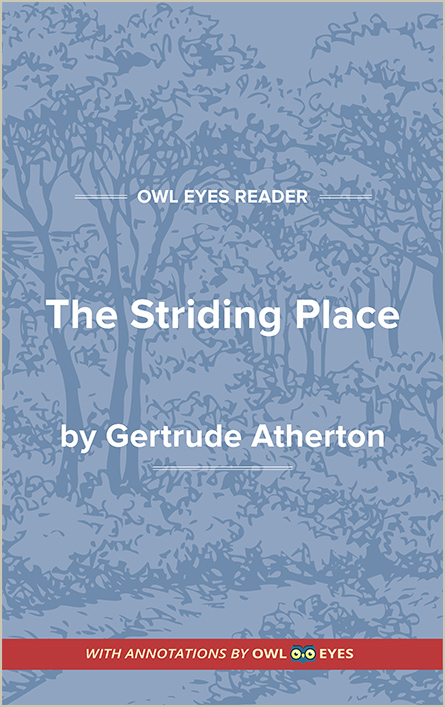Analysis Pages
Literary Devices in The Striding Place
Narration and Tone: The narrator’s tone is that of an intelligent, philosophically inclined, bemused, somewhat skeptical young aristocrat. Though the narrator is not identical to the protagonist Weigall, the narration does reflect his personality and perspective. As the story progresses, both Weigall and the narrator’s tone grow more sincere and humble in the face of grave danger and mystery.
Foreshadowing: The most important moments of foreshadowing take place during the remembered conversation between Weigall and Gifford about the nature of the soul. Gifford expounds upon his theory that souls are independent of the body and thus free to roam at will after the body’s death. Gifford’s concept proves crucial to the story’s later events.
Literary Devices Examples in The Striding Place:
The Striding Place
🔒"There was no lonelier spot in England, nor one which had the right to claim so many ghosts, if ghosts there were...." See in text (The Striding Place)
"The body and soul are twins, life comrades—sometimes friends, sometimes enemies, but always loyal in the last instance...." See in text (The Striding Place)

